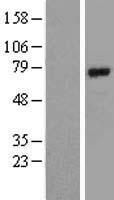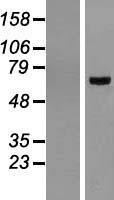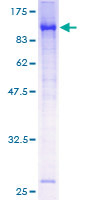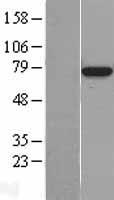order histories, retained contact details for faster checkout, review submissions, and special promotions.
Forgot password?
order histories, retained contact details for faster checkout, review submissions, and special promotions.
Locations
Orders Processing,
Shipping & Receiving,
Warehouse
2 Shaker Rd Suites
B001/B101
Shirley, MA 01464
Production Lab
Floor 6, Suite 620
20700 44th Avenue W
Lynnwood, WA 98036
Telephone Numbers
Tel: +1 (206) 374-1102
Fax: +1 (206) 577-4565
Contact Us
Additional Contact Details
order histories, retained contact details for faster checkout, review submissions, and special promotions.
Forgot password?
order histories, retained contact details for faster checkout, review submissions, and special promotions.
ARNTL / BMAL1
aryl hydrocarbon receptor nuclear translocator-like
ARNTL / BMAL1 is a basic helix-loop-helix protein that forms a heterodimer with CLOCK. This heterodimer binds E-box enhancer elements upstream of Period (PER1, PER2, PER3) and Cryptochrome (CRY1, CRY2) genes and activates transcription of these genes. PER and CRY proteins heterodimerize and repress their own transcription by interacting in a feedback loop with CLOCK/ARNTL complexes. Defects in this gene have been linked to infertility, problems with gluconeogenesis and lipogenesis, and altered sleep patterns. Several transcript variants encoding different isoforms have been found for this gene.
| Gene Name: | aryl hydrocarbon receptor nuclear translocator-like |
| Synonyms: | ARNTL, BHLH-PAS protein JAP3, BHLHe5, BMAL1c, JAP3, PASD3, Member of PAS protein 3, MOP3, TIC, Brain and muscle ARNT-like 1, Member of PAS superfamily 3 |
| Target Sequences: | NM_001178 NP_001169.3 O00327 |
Publications (5)











If you do not find the reagent or information you require, please contact Customer.Support@LSBio.com to inquire about additional products in development.









